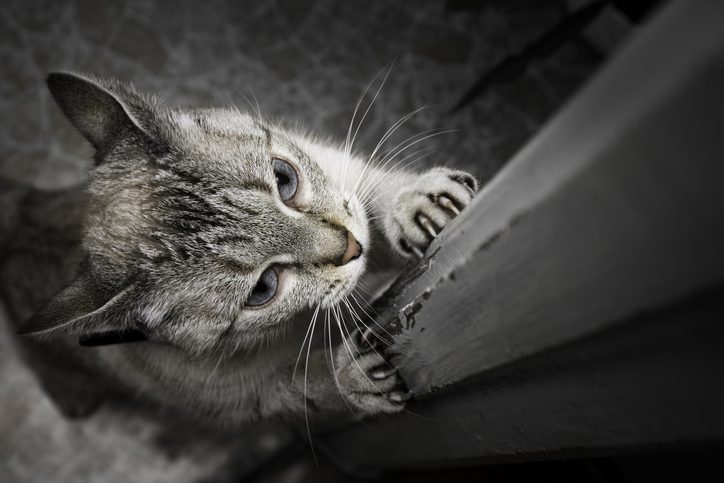Is it Possible for Cats to have Separation Anxiety?
Separation anxiety is a real condition that can affect humans, dogs, and even cats. While it is a well-known phenomenon in dogs, it is less commonly known that cats can suffer from separation anxiety as well. This article will explore cats with separation anxiety, and discuss the signs, causes, and treatment options for dealing with it.
Cats can experience separation anxiety when their owners are away. Signs of separation anxiety in cats can include vocalizing, hiding, excessive grooming, urinating or defecating outside of the litter box, and destructive behavior. To help cats cope with separation anxiety, owners can provide interactive toys and treats, establish a routine, and make sure the cat has a safe and comfortable environment.
Separation anxiety can be a serious problem, but with the right understanding and patience, it is possible to help your cat feel more secure and less stressed when you’re away. Keep reading to learn more about how to identify and address this common issue in cats.
What is Separation Anxiety in Cats?
Separation anxiety is a behavioral disorder that occurs when cats feel anxious about being away from their owners. It is a common problem that can manifest in cats of all ages and temperaments. If a cat has a deep bond with their owner, it is possible for them to develop separation anxiety when they are not together.
Signs To Look Out For
Separation anxiety in your cat can be difficult to recognize and diagnose, but there are some telltale signs to watch out for.
– Unexplained vocalizations such as meowing, crying, and howling
– Excessive grooming, licking and chewing
– Excessive scratching
– Aggression toward other pets or people
– Elimination outside of their litter box
– Unusual clinginess or following their owners around
– Loss of appetite
– Unusual pacing or restlessness

Causes of Separation Anxiety
Separation anxiety is a condition that occurs when cats become overly attached to their owners and exhibit signs of distress when they are not present or together. It is thought to be triggered by changes in the cat’s environment, such as new people or pets, a move to a new home, a change in routine, or an owner’s absence for extended periods of time.
Other factors may include:
- Poor Socialization: Cats that have not been adequately socialized as kittens may be more prone to separation anxiety when left alone.
- Hormonal Changes: Cats can experience hormonal shifts that can cause changes in their behavior, resulting in separation anxiety.
- Lack of Stimulation: Cats that don’t get enough stimulation and interaction with humans may become bored and develop separation anxiety.
- Change in Environment or Schedule: Cats often become anxious when their environment or routine changes drastically.
- Previous Negative Experiences: Cats that have had negative experiences when left alone, such as being punished or ignored, may develop separation anxiety as a result.
Separation anxiety can also be caused by anxiety or fear-inducing experiences such as physical or emotional trauma.
Treatment Options
Treatment for separation anxiety in cats involves calming techniques, environmental enrichment, and behavior modification. It is important for pet owners to be patient and consistent when dealing with this condition and to seek out the help of a veterinarian or professional animal behaviorist if it is necessary.
Some other helpful tips include:
- Talk to your veterinarian to rule out any underlying medical conditions that may be causing the anxiety in your cat.
- Make a safe and comfortable environment for your cat. Provide plenty of hiding spots and toys for them to play with.
- Provide regular exercise for your cat to help reduce stress and anxiety.
- Spend time with your cat every day to build a bond and provide a sense of security.
- Encourage positive behaviors with treats and rewards.
- Provide a routine for your cat so they know what to expect each day.
- Consider calming supplements or medications to help reduce anxiety if your cat is stressed.
- Gradually expose your cat to the source of its anxiety.

Conclusion
It is important to remember that cats can suffer from separation anxiety just like any other pet. Cats require a great deal of emotional and physical care to be healthy and content, and if they experience a lack of socialization or attention, they may develop separation anxiety. It can be difficult to recognize the signs of separation anxiety in cats, but if you notice any changes in their behaviors or emotions, it is important to take the time to investigate the underlying cause and to make sure to use the proper treatments if need be.
If you have any questions regarding your cat’s health, call our veterinarian at (303) 850-9393 or Make an Appointment online! We would be more than happy to assist you and your pet!
